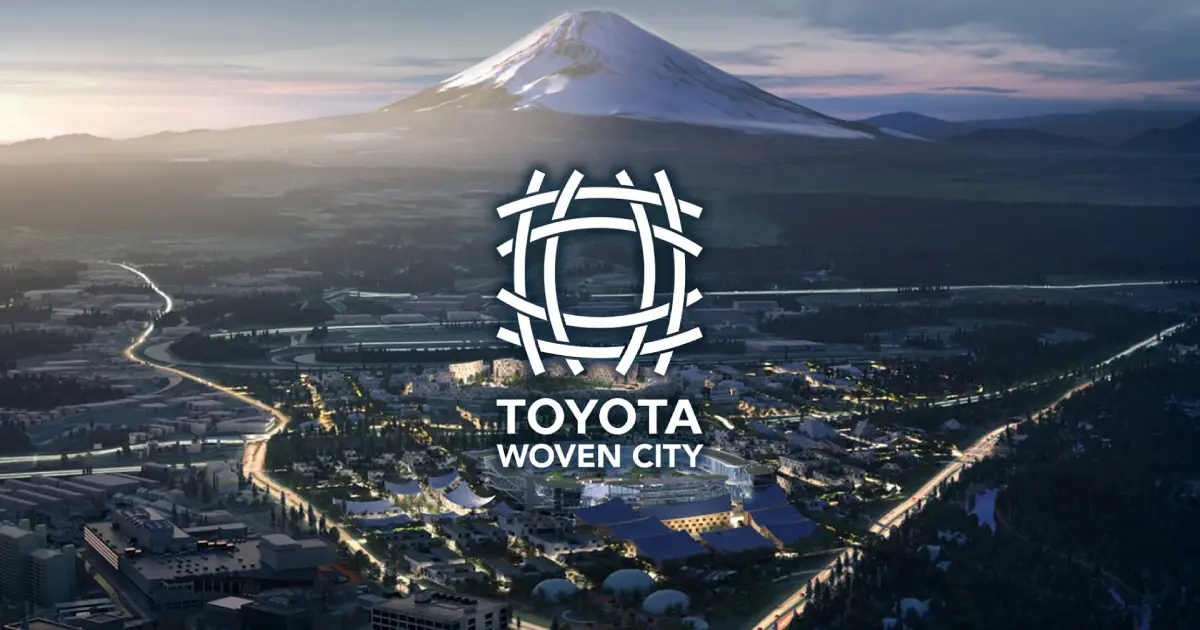Toyota Constructs $10B Smart City Near Mount Fuji

Toyota’s ambitious Woven City, a $10 billion "city of the future" located at the base of Mount Fuji, is preparing to welcome its first residents in 2025. Announced in 2021, this 175-acre experimental hub aims to serve as a living laboratory for cutting-edge technologies, including robotics, self-driving vehicles, and AI-powered smart homes.
A Vision for the Future
Woven City is Toyota’s effort to rebrand itself as a mobility company, moving beyond its traditional automotive focus. Designed by renowned architect Bjarke Ingels, the project integrates a network of three distinct street types—dedicated to robotaxis, bikes, and pedestrians. It is envisioned as a space where innovators can test and refine futuristic technologies, including flying cars and smart city solutions.
Toyota’s Chairman, Akio Toyoda, emphasized the city’s unique possibilities, highlighting concepts like "pet robots" for older residents and personal drones to accompany joggers for safety.
Progress and Early Residents
At CES 2025, Toyota confirmed that the first phase of construction is complete, with the initial batch of 100 residents, primarily Toyota employees and their families, expected to move in during fall 2025. The city plans to eventually house 2,000 “weavers”, a term Toyota uses to describe its residents.
These early inhabitants will not only live in AI-powered smart homes but also participate in Toyota’s vision of interconnected living and mobility, exploring how advanced technologies can improve daily life.
A Testbed for Innovation
Woven City is designed to be a testing ground for advanced ideas, positioning Toyota as a leader in next-generation mobility. The automaker has been under pressure from competitors like Tesla and BYD due to its slower transition to fully electric vehicles. With this initiative, Toyota hopes to demonstrate its capabilities in technologies like robotics and autonomous systems.
The city is also attracting companies eager to trial their products in this futuristic environment. Among the first batch of innovators announced were:
- Air-conditioning manufacturers
- An instant noodle maker
- A coffee company offering futuristic café experiences
These collaborations illustrate the city’s potential to combine high-tech advancements with everyday comforts.
Reinventing Mobility and Living
Woven City’s unique features include:
- AI-driven smart homes that optimize energy and improve residents’ lives
- Advanced robotics for assisting people, particularly older residents
- Integrated streets for seamless transportation via autonomous vehicles and bicycles
- A focus on sustainability and community-driven innovation
Toyota hopes the project will drive its transformation and inspire new approaches to mobility, helping it compete in a fast changing automotive industry.
A Bold Experiment
As the world’s largest automaker faces challenges in maintaining dominance, Woven City represents a bold step into uncharted territory. By leveraging cutting-edge technology and creating innovation, Toyota aims to redefine not just mobility, but how humans interact with their environment in a smarter, more connected world.
The project’s success will be closely watched as it begins welcoming residents and testing futuristic technologies in real-world scenarios. Woven City is more than a city—it’s Toyota’s vision of what the future could look like.





